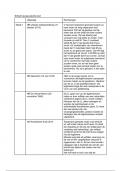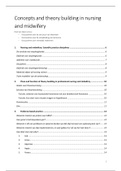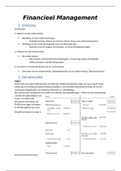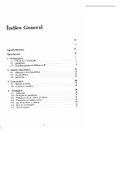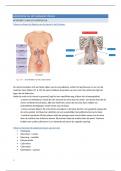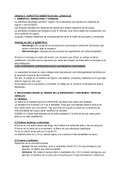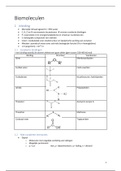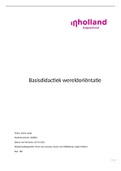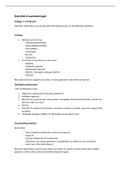Aleena Islam
POSTCARD FROM A TRAVEL SNOB – Sophie Hannah
Themes
Superiority, distaste, derogatory, pretentious, pompous, class, status, arrogance,
condescending, pessimism
Contextual overview
In this poem, the ‘travel snob’ derides the behaviour and activities of the
average British tourist, and, in doing so, comes across as arrogant and
condescending. The speaker is a person who despises ordinary British tourists
who go abroad for good weather and cheap alcohol and who are not interested
in the local culture. the poem, written as a sort of dramatic monologue,
constructs a divide between the speaker, an enlightened traveller, and his/her
target, the seemingly loutish package-holiday goer. It explores another
perspective on the class structures that exist in British society, from the point of
view of a young person of apparently middle-class background, who looks down
on the working class and their holiday habits. In the end, the reader isn’t hugely
convinced that there is a difference between the speaker and those he/she
describes. This poem explores the growing gap between the aspirant middle
classes, with their increasingly expensive tastes in holidays and travel, and the
working classes, whose lives continue to be governed by mediocre incomes. This
gap was growing, largely, due to a boom in middle class incomes in the late 80s
and throughout the 90s, giving rise to the ‘gap year’ phenomenon, increasingly
lavish holiday experiences and yet more exotic holiday locations.
Key features of language, form and structure
- The word ‘not’ is used seven times throughout the poem to construct a
view of the speaker that is defined by negatives. This repetition
emphasises the pessimism of the speaker, and the condescending manner
of her tone given that she believes what she says about the average
British tourist to be the realistic truth.
- In the first stanza, the speaker states, ‘This place is not a holiday resort …
karaoke nights and pints of beer.’ The metonymy of this phrase
highlights the middle/high-class stereotype; that when any person of low-
status go on holiday, they are uncouth and loutish as they fill their time
with disconcerting pass times.
- At the end of the first stanza, when faced at the prospect of this place
being a holiday resort for ‘drunken tourist types,’ the speaker states,
‘perish the thought.’ The high-class vernacular emphasises the
speaker’s sense of superiority. In addition, it is probable that the speaker
states this phrase since she does not want to be associated with the
lower-classes, due to the fact that she perceives them as uncouth and
uncivilised. The caesura before this exclamation further reinforces her
disgust at the thought.
- The second stanza commences with the phrase, ‘this is a peaceful place,
untouched by man.’ The allusion to purity has biblical connotations since
it could be possible that the speaker is referring to a sort of garden of
Eden-esque environment. The fact that she has the ability to make this
POSTCARD FROM A TRAVEL SNOB – Sophie Hannah
Themes
Superiority, distaste, derogatory, pretentious, pompous, class, status, arrogance,
condescending, pessimism
Contextual overview
In this poem, the ‘travel snob’ derides the behaviour and activities of the
average British tourist, and, in doing so, comes across as arrogant and
condescending. The speaker is a person who despises ordinary British tourists
who go abroad for good weather and cheap alcohol and who are not interested
in the local culture. the poem, written as a sort of dramatic monologue,
constructs a divide between the speaker, an enlightened traveller, and his/her
target, the seemingly loutish package-holiday goer. It explores another
perspective on the class structures that exist in British society, from the point of
view of a young person of apparently middle-class background, who looks down
on the working class and their holiday habits. In the end, the reader isn’t hugely
convinced that there is a difference between the speaker and those he/she
describes. This poem explores the growing gap between the aspirant middle
classes, with their increasingly expensive tastes in holidays and travel, and the
working classes, whose lives continue to be governed by mediocre incomes. This
gap was growing, largely, due to a boom in middle class incomes in the late 80s
and throughout the 90s, giving rise to the ‘gap year’ phenomenon, increasingly
lavish holiday experiences and yet more exotic holiday locations.
Key features of language, form and structure
- The word ‘not’ is used seven times throughout the poem to construct a
view of the speaker that is defined by negatives. This repetition
emphasises the pessimism of the speaker, and the condescending manner
of her tone given that she believes what she says about the average
British tourist to be the realistic truth.
- In the first stanza, the speaker states, ‘This place is not a holiday resort …
karaoke nights and pints of beer.’ The metonymy of this phrase
highlights the middle/high-class stereotype; that when any person of low-
status go on holiday, they are uncouth and loutish as they fill their time
with disconcerting pass times.
- At the end of the first stanza, when faced at the prospect of this place
being a holiday resort for ‘drunken tourist types,’ the speaker states,
‘perish the thought.’ The high-class vernacular emphasises the
speaker’s sense of superiority. In addition, it is probable that the speaker
states this phrase since she does not want to be associated with the
lower-classes, due to the fact that she perceives them as uncouth and
uncivilised. The caesura before this exclamation further reinforces her
disgust at the thought.
- The second stanza commences with the phrase, ‘this is a peaceful place,
untouched by man.’ The allusion to purity has biblical connotations since
it could be possible that the speaker is referring to a sort of garden of
Eden-esque environment. The fact that she has the ability to make this

